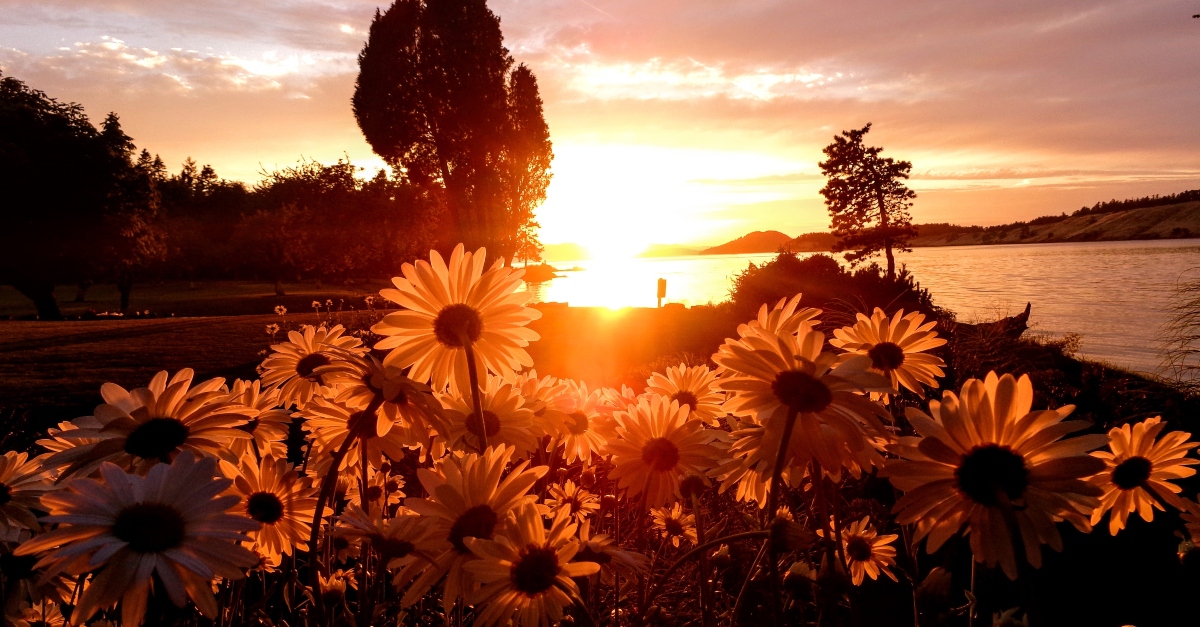Was the Fall a Necessary Part of God’s Plan for Humanity?
Share

I have been a part of Evangelical churches for as long as I can remember. I have attended Sunday school and other Bible studies from early childhood, and have sat through countless sermons. For a long time, I had the impression that Adam and Eve’s fall in the garden was a setback in God’s plan. One that required him to sacrifice his son in order to redeem us and get us back to the state we were in prior to the fall.
While I do not hear it explicitly expressed that way today, much of what I still read and hear seems to follow that mindset somewhat. We messed up and God is working to fix the problem. But is that really the case? Was the fall an unfortunate failure on the part of humanity that God is working to overcome? Or was the fall a necessary part of God’s ultimate plan for humanity? This article will explore that last question and see what light the Scripture might have to shine on it.
Our Original State
The first three chapters of Genesis are our best guide to the initial state of humanity. We are told there that humanity was created in the image of God and commissioned to rule over the remainder of creation. God planted a special garden and put our first parents into it to take care of it. And they would meet with God there in the garden. They were in a state of innocence and without shame.
Yet they had limits. The fruit of one tree was forbidden to them. But the Serpent came to them, telling them that God was holding out on them. According to the Serpent, God knew that when they ate that fruit, they would become like God, or like a god. They would become more than what they were. And so, they ate from the forbidden tree. They discovered that, rather than being elevated like they had hoped, they lost their place in the garden.
Psalm 8 mirrors many of the themes from these early chapters of Genesis. And it adds something that may have been alluded to by the Serpent. Psalm 8:5 says that God created us “a little lower than the angels.” The word translated in the NIV as angels is Elohim. This word is used in the Old Testament for God as well as for other spiritual beings. Whether it should be translated as God, or angel, in this place is beyond my ability to determine. But what is significant is that we, as humans, are not at the top of the heap.
Our Current State
The Scripture makes clear to us that humanity continues to follow the example of Adam and Eve, living in disobedience to God and grasping for something that is out of our reach. We are lost and separated from the life of God. But God has worked to restore the broken relationship with his image bearers. The life, death, and resurrection of Jesus – God in the flesh – makes possible a new life with him.
Those who commit their life to the Lordship of Jesus will experience a new birth and a new hope for the future. But in the meantime, we continue to live in a fallen world, suffering all the ills of this world. And our walk with God is one of faith, not of sight. Our hope is not for this life, but in the life to come.
Our End State
What does this future hold for us? What is it that we are hoping for? When I was a child, I envisioned becoming an angel when I died, floating on a cloud, and watching what was happening on the earth I had left behind. And something like that seems to be popular among believers today. We look to heaven as being a place where we will experience paradise for all of eternity, whatever you envision paradise to be.
But I am not sure that you will find a lot of support for that view within the pages of the Bible. What we are told is that we will spend eternity with the Lord (1 Thess. 4:17); that it will be on a renewed earth (2 Pet. 3:10-13); and that in some way we will be like Jesus (1 John 3:2).
I have asked many people about the relationship between life in the Garden and the life to come. And most seem to view our future as, in many ways, a restoration to life before the fall. But is that the case? Or is God working to produce something better?

Photo credit: Unsplash/Malachi Brooks
Was the Fall Necessary?
There is another way to ask this question. Was Adam perfect? Perfect in the sense of being all God intended him to be? Or was he somehow unfinished? And, if so, did humanity’s fall and redemption somehow work to produce that finished product that God wanted from the beginning?
I believe that 1 Peter 1:3-9 can help to answer this. As believers in the Lord Jesus, we have a living hope and an inheritance stored up for us in heaven. The great unveiling of our salvation is coming. But in the meantime, we suffer through the trials of this life, especially because of our faith in Christ. Peter compares these trials to a refiner’s fire that purifies – a refining process that will result in praise, glory, and honor when Jesus returns for us.
James 1:2-4 expresses something similar. James tells us to rejoice in our suffering – not because the suffering itself is joyful, but because of what it produces. The end goal is to “be mature and complete, not lacking anything” (James 1:4). God can use the trials we face in this life to produce a finished product.
Our forebears in the Garden lived in a state of innocence; they had no sin. And we could picture them as being the most flawless humans who have ever existed. But were they complete? Or were they more like a lump of steel that needed to be heated and hammered until it became a sword? In their state of innocence, Adam and Eve faced no trials. But, with the fall, they were thrown into the furnace where the finishing work could be done.
While we might question the length of time this refining process has taken, there seems little question that throughout the whole process, some have emerged from the fire purified and fit for the master’s use. Others have perished in the flames, like the impurities removed by the refiner’s fire.
Our End State Revisited
So, if indeed this life in a fallen creation can be compared to a refiner’s fire, what does the end product look like? Honestly, I don’t know. But we do have some clues.
In 1 Corinthians 6:3 is a short little sentence that it seems we often overlook. In the midst of Paul’s corrective concerning disputes within the church body he says, “Do you not know that we will judge angels?” (1 Cor. 6:3). Compare that with Psalm 8:5 quoted above. We were made a little lower than angels. But we will ultimately judge them. We are below the angels now, as well as at our creation. But we will be above them some day. Once we are “mature and complete.”
Another clue comes from 1 John 3:2, also mentioned above. “Dear friends, now we are children of God, and what we will be has not yet been made known. But we know that when Christ appears, we shall be like him, for we shall see him as he is.” When Christ appears, we will be like him. I do not believe that means we, ourselves, will be God. But we become much more than we now are.
In Genesis 1:26-27, God created humanity in his image. But we fell, tarnishing that image. In Colossians 1:15 Jesus, the Son, is said to be “the image of the invisible God.” Jesus, the Son, was a new humanity, and all who come to him will be transformed into that image (Col. 3:10).
A third clue comes from 2 Peter 1:3-4. In this passage Peter talks about participating in the divine nature. This would seem to be similar to Jesus’ prayer for us in John 17:21, that we might be in God. As believers, we are “in Christ.” And in him we participate in the divine nature – something that I do not believe was true of Adam in the garden.
So, was the Fall necessary? I cannot definitively answer that in the affirmative. But I do believe that it is quite likely. God used the Fall as a refiner’s fire to separate those who would have faith from those who would not. And he used it to help us to develop and to become something that we would never have achieved apart from the growing process of enduring trials.
Photo credit: ©Getty Images/digitalimagination
